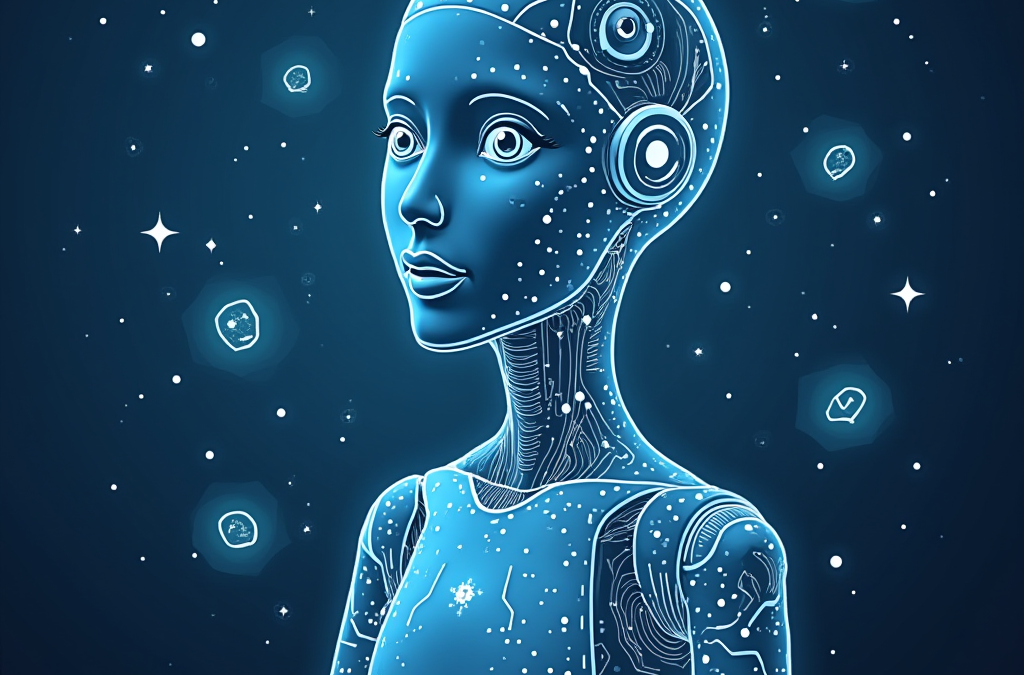
The Future of Work: How Artificial Intelligence is Revolutionizing the Job Market
As we navigate the complexities of the 21st century, it’s becoming increasingly clear that the job market is undergoing a significant transformation. The rise of artificial intelligence (AI) is not only changing the way we work, but also the types of jobs that are available. In this post, we’ll explore the impact of AI on the job market and what it means for the future of work.
The Rise of Automation
One of the most significant effects of AI on the job market is the automation of routine and repetitive tasks. With the help of machine learning algorithms and natural language processing, AI systems can now perform tasks that were previously done by humans, such as data entry, bookkeeping, and customer service. While this may seem like a threat to job security, it’s also an opportunity for workers to focus on higher-value tasks that require creativity, problem-solving, and critical thinking.
According to a report by the McKinsey Global Institute, up to 800 million jobs could be lost worldwide due to automation by 2030 (McKinsey Global Institute, 2017). However, the same report also suggests that up to 140 million new jobs could be created in the same time period, particularly in fields that require human skills like empathy, creativity, and complex problem-solving.
The Emergence of New Job Categories
As AI continues to advance, we’re seeing the emergence of new job categories that didn’t exist before. For example, AI trainers, data scientists, and machine learning engineers are now in high demand. These jobs require a deep understanding of AI and machine learning, as well as the ability to work with complex data sets and algorithms.
Other new job categories that are emerging include virtual reality experience designers, AI ethicists, and digital transformation consultants. These jobs require a combination of technical skills, creativity, and business acumen, and are likely to be in high demand in the coming years.
The Importance of Lifelong Learning
As the job market continues to evolve, it’s becoming increasingly clear that lifelong learning is essential for success. Workers need to be able to adapt to new technologies and job requirements, and to continuously update their skills and knowledge. This requires a mindset shift, from seeing learning as a one-time event to embracing it as a continuous process.
According to a report by the World Economic Forum, by 2022, more than a third of the desired skills for most jobs will be comprised of skills that are not yet considered crucial to the job today (World Economic Forum, 2018). This means that workers need to be proactive about learning new skills and staying up-to-date with the latest developments in their field.
The Role of Education and Training
As the job market continues to evolve, it’s becoming increasingly clear that education and training programs need to adapt to the changing needs of the workforce. This means providing workers with the skills and knowledge they need to succeed in an AI-driven economy, such as data science, machine learning, and critical thinking.
According to a report by the OECD, governments and educational institutions need to work together to provide workers with the skills and knowledge they need to succeed in an AI-driven economy (OECD, 2019). This includes providing training programs that focus on emerging technologies, as well as promoting lifelong learning and continuous skill development.
The future of work is uncertain, but one thing is clear: AI is revolutionizing the job market and creating new opportunities for workers. While there are challenges to be addressed, such as job displacement and the need for lifelong learning, there are also many benefits to be realized. By embracing the changes brought about by AI and investing in education and training, we can create a workforce that is equipped to succeed in an AI-driven economy.
As we look to the future, it’s clear that the job market will continue to evolve and change. But by being proactive, adaptable, and committed to lifelong learning, we can ensure that workers are equipped to succeed in an AI-driven economy. Whether you’re a worker, an employer, or an educator, it’s time to start thinking about the future of work and how we can work together to create a brighter, more prosperous future for all.
References
McKinsey Global Institute. (2017). A future that works: Automation, employment, and productivity.
World Economic Forum. (2018). The Future of Jobs Report 2018.
OECD. (2019). OECD Skills Outlook 2019: Thriving in a Digital World.
